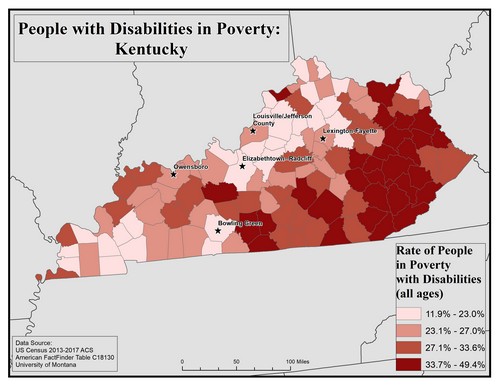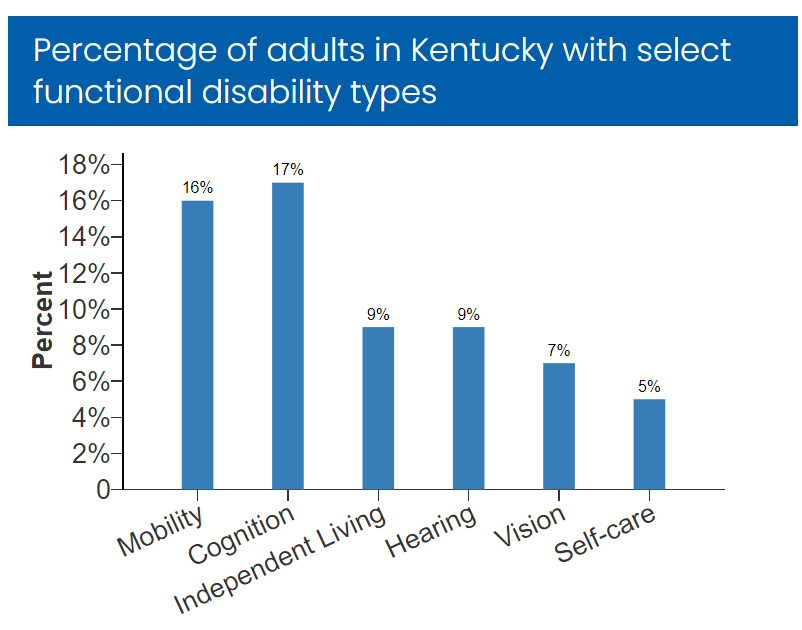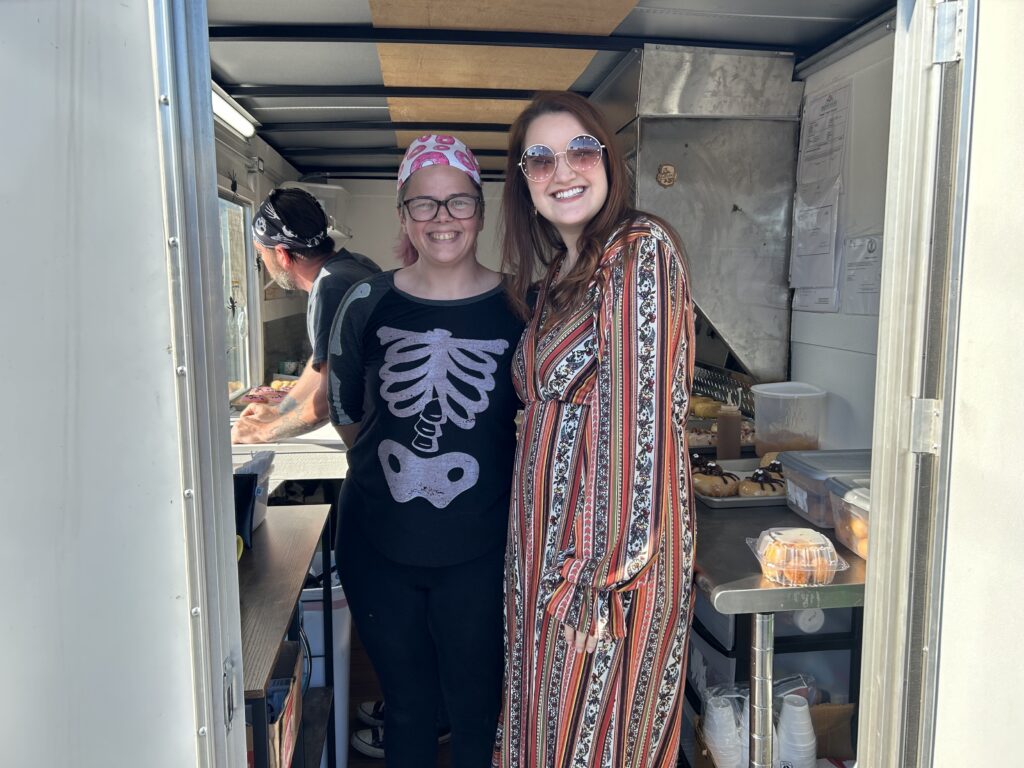This July, as we celebrate Disability Pride Month and the 34th anniversary of the landmark Americans with Disabilities Act (ADA) legislation, we also want to acknowledge the ongoing hardships and barriers that people with disabilities continue to face. At the Mountain Association, a core part of our mission is to provide financial opportunities to those who have historically been excluded from the financial system, and this includes the vibrant and diverse population of individuals with disabilities.

People with disabilities represent the largest and most diverse minority group in the United States. In Kentucky, approximately 15.5% of the population reports having a disability. In Eastern Kentucky, the rate is even higher at about 21%, with some counties, such as Clay, Breathitt, and Owsley, reporting disability rates of up to 30%. Individuals with disabilities in Kentucky are twice as likely to live below the poverty line compared to those without disabilities, with around 25% of people with disabilities experiencing poverty compared to 11% of those without disabilities. The employment rate for people with disabilities in Kentucky is about 32%, significantly lower than the 78% employment rate for those without disabilities.
These economic disparities are largely due to limited access to education, healthcare, and financial services in our region and beyond.
Historically, disabled business owners have faced significant exclusion from the financial system due to a range of prejudices and perceived risks. Financial institutions often label disabled individuals as high-risk borrowers based on unfounded misconceptions about their capacity to manage a business or repay loans. This systemic bias has resulted in a critical lack of access to funding essential for launching and sustaining a business. Moreover, physical barriers and the absence of accessible financial services have further marginalized disabled entrepreneurs from mainstream financial systems.

Community Development Financial Institutions, or CDFIs, like Mountain Association play a crucial role in addressing these barriers and supporting disabled entrepreneurs. By offering tailored financial products and services based on ability to repay rather than credit scores, CDFIs can bridge the gap and provide the necessary capital for disabled business owners to thrive.
Mountain Association is committed to serving people with disabilities with deliberate intention and care. This year, through discussions and meetings with advocates from the Office of Vocational Rehabilitation, we refined a loan offering specifically for equipment purchases available to those working with the Office of Self-Employment. This product is designed to address the unique needs of disabled entrepreneurs, providing them with the financial tools necessary to succeed in their business ventures.
As an organization, we have also looked for other ways to improve our accessibility. For example, Mountain Association is planning architectural modifications to make our Berea office fully ADA accessible. Our new staff go through learning series on a variety of topics, and in March, we focused on ADA legislation and its equalizing impact across the country.

As an employee with disabilities, I am appreciative of accessibility being truly prioritized. When most people see me, they have no idea that I am disabled. Appearing young and healthy is both a privilege and challenge. I don’t experience the daily discrimination and stigma that my friends with visible disabilities do. On the other hand, I have to fight to be believed for my health conditions and have been verbally assaulted by strangers when I do use accommodations. Around 33 million Americans live with an invisible or non-apparent disability. A 2023 study found that 47% of employees with invisible disabilities have not disclosed their conditions to their employees for fear that they will be treated or perceived differently by their coworkers. However, when an organization encourages employees to ask for needed accommodations and demonstrates equitable practices, it makes it easier as an employee to take that brave step. Mountain Association has created a space where I no longer feel ashamed of my physical limitations.
My disabilities are invisible, but my support is on full display. My coworkers are empathetic and understanding, and even when my severe and debilitating chronic pain takes me out of commission for a few days, no one questions my dedication, which is all I’ve ever wanted from a workplace. From a supervisor who chauffeurs me to client visits as needed, to coworkers like Jimmy and Cam who fetched my cane after I dropped it off the side of a mountain, it feels like Mountain Association celebrates Disability Pride year-round, not just in July.
For other employers there are easy ways to create more inclusive workspaces! Educate your staff about the different ways disabilities manifest, use inclusive language, implement assistive technologies, and, most importantly, create a culture of trust.
That being said, even though we’ve made great strides at Mountain Association, we’re continually looking to improve our services in order to better serve all people. Please let us know if you have any ideas for us!





